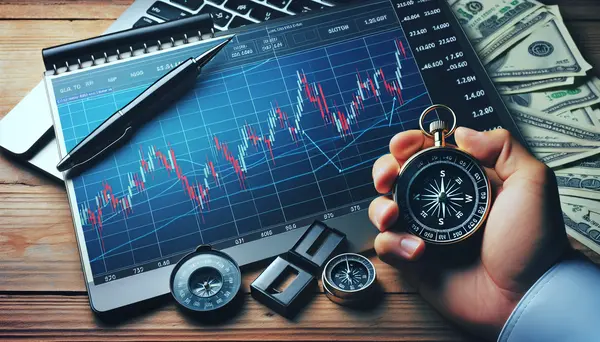Overvaluation
Overvaluation
Understanding Overvaluation in Trading
Trading is a fast-paced world filled with complex terms and jargons. One term that you might come across is overvaluation. Simply put, overvaluation refers to a situation where a specific security (like stocks or bonds) is trading at a price higher than its intrinsic value. In other words, when its current market price is more than its actual worth, we can say the security is overvalued.
The Concept of Overvaluation
In an ideal market, prices are supposed to reflect the actual value of securities. However, that’s not always the case, because market prices are often affected by investor sentiment and other factors. When investor optimism surges, it often leads to overvaluation. This tends to happen especially during periods of economic boom, where price-inflating events are more common.
How Does Overvaluation Happen?
Overvaluation generally happens when there is high demand for a particular security. It may be driven by positive news about the company, or simply rising investor confidence. However, if the company's fundamentals — like earnings, revenue, and other financial indicators — don't support the price increase, the security is likely overvalued. This can result in an asset bubble, which could burst, causing prices to drastically decrease.
The Impact of Overvaluation
Overvaluation can have significant impacts on trading. If you buy an overvalued security, you may end up paying more than what it's worth. That can lead to losses, especially if the market corrects the overvaluation and the price of the security falls. Therefore, it's crucial for traders to perform thorough research and analysis on securities before purchasing.
Identifying Overvaluation
To identify an overvalued security, traders use various financial ratios and indicators, such as the Price-to-Earnings (P/E) ratio, the Price-to-Book (P/B) ratio, and discounted cash flow analyses. These metrics can help determine whether the current price of a security truly reflects its intrinsic value or not.
Conclusion on Overvaluation
In the world of trading, understanding concepts like overvaluation is key to making informed investment decisions. Remember, buying overvalued securities can lead to potential losses. So, always be sure to do your research and analysis before making a move.
Blog Posts with the term: Overvaluation

Market sentiment analysis is a method used by traders and investors to measure the overall mood of a market, including the cryptocurrency market, in order to make informed trading decisions. It involves analyzing large volumes of data from various sources,...


